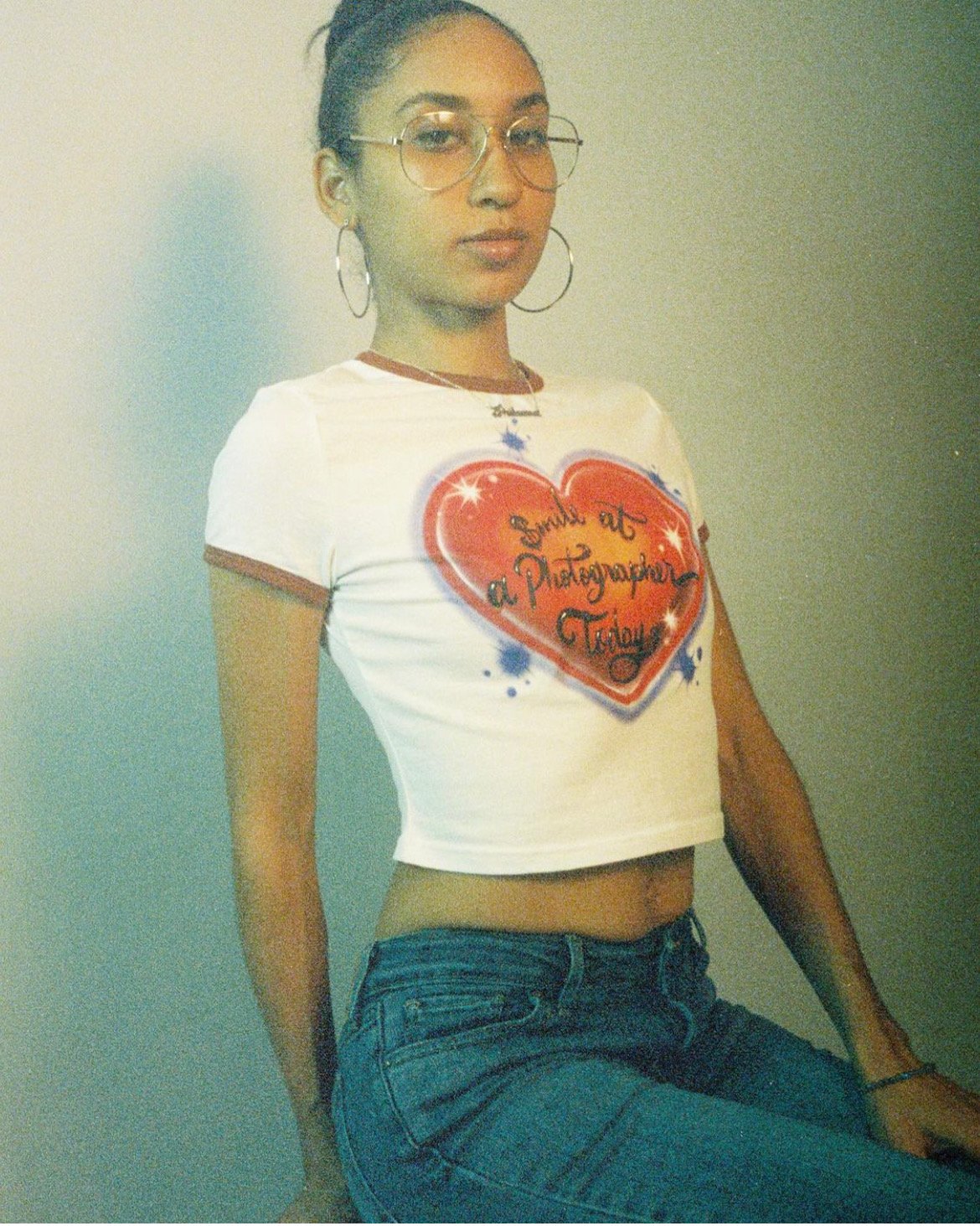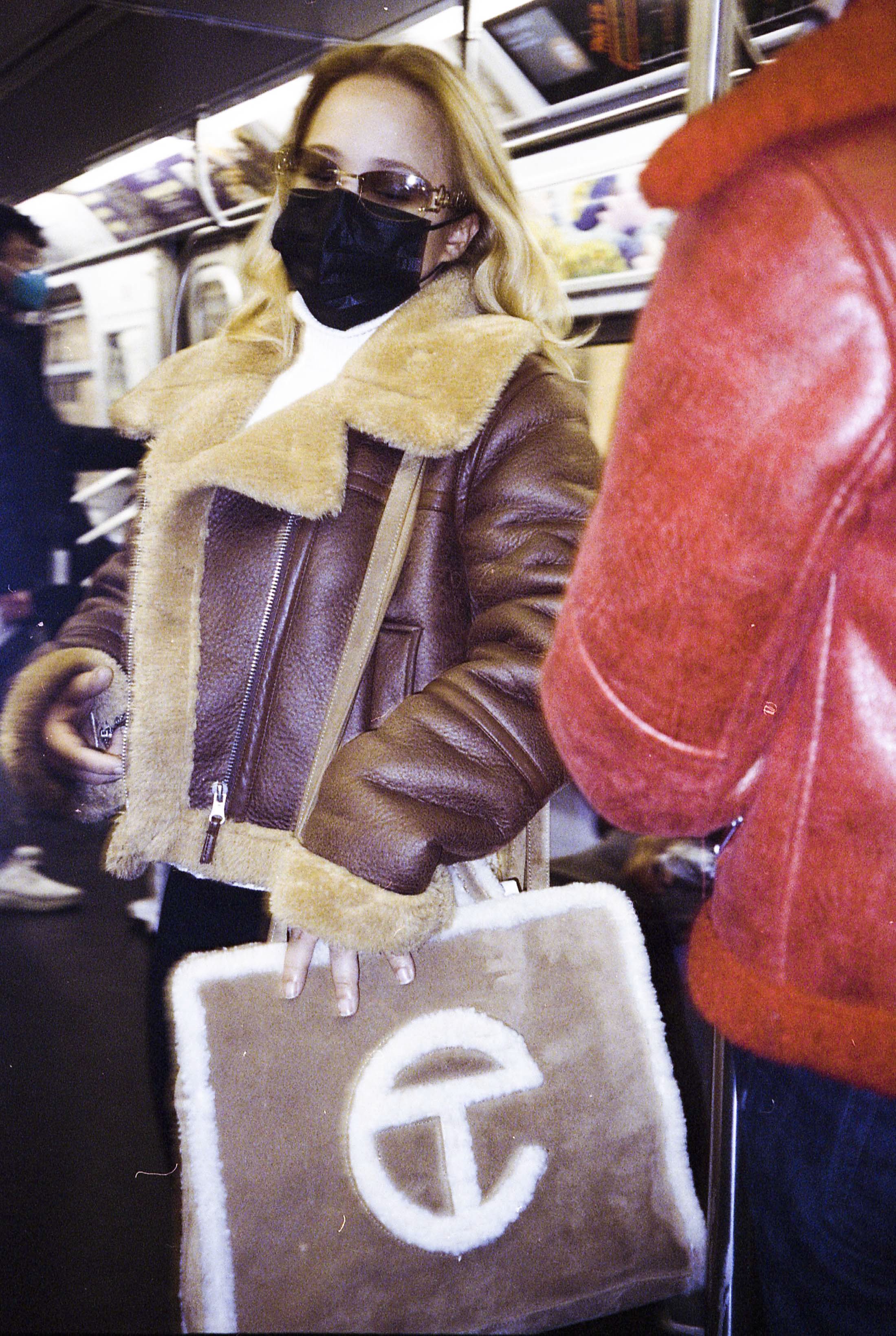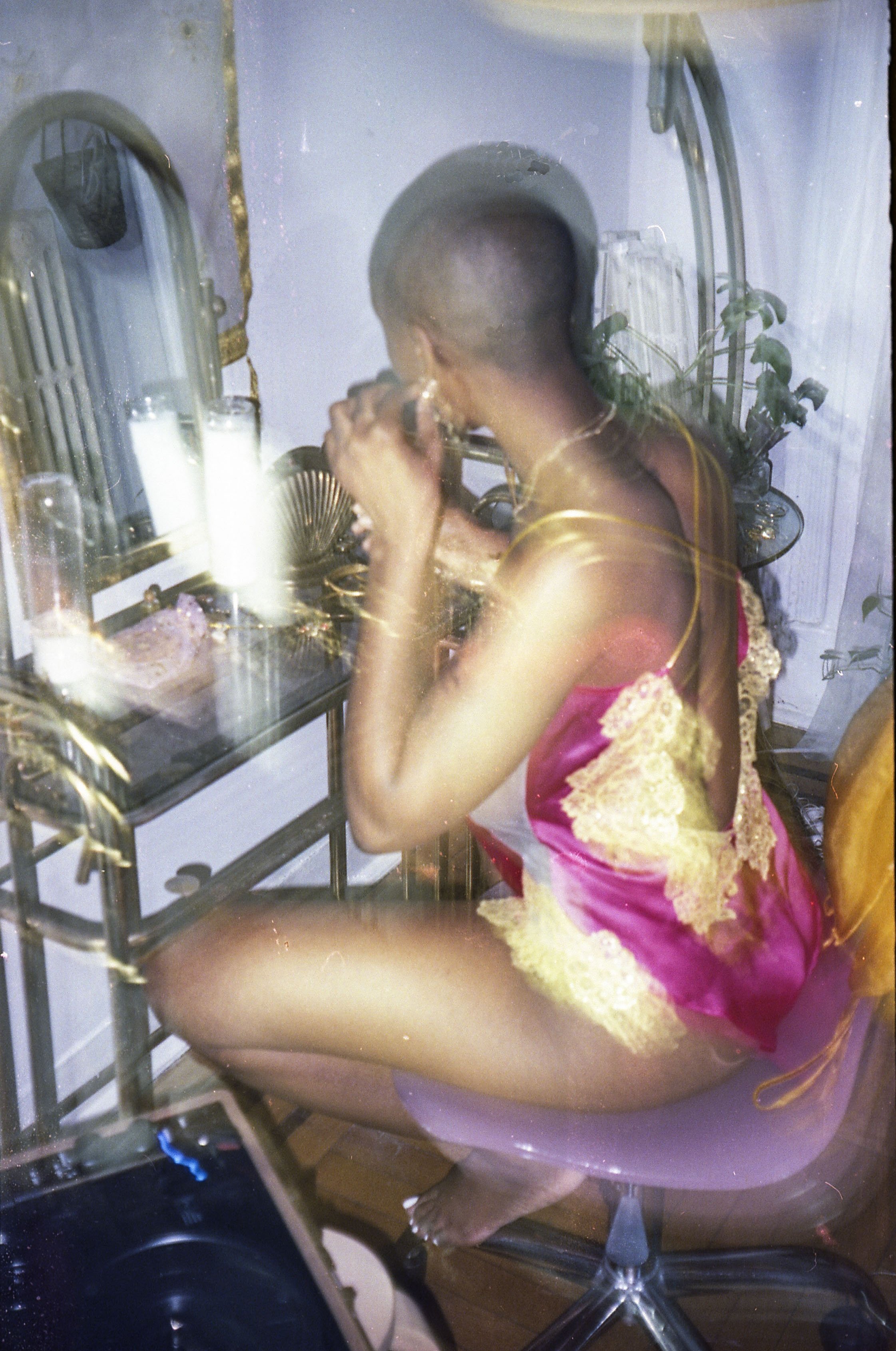PHOTOGRAPHERS TO KNOW: PALOMA URQUIA
PALOMA URQUIA
Paloma Urquia is a Dominican-American film photographer and mother from uptown, NYC. Coming from a creative family, it wouldn’t take long for Paloma to realize she had a natural gift for photography but combined imposter syndrome and feeling isolated from like-minded creatives made getting started on her craft challenging. Now with a stronger community of creative collaborators, a healthy balance between motherhood and work, and a dedication to preserving archival imagery for future generations, Paloma’s film photography career is in full motion.
SHEER: Tell us a little bit about yourself.
PALOMA URQUIA: My name is Paloma Urquia and I am a Dominican-American film photographer from Uptown NYC.
SHEER: How did you find yourself on the path to becoming a creative and then ultimately a photographer?
PU: I caught the creative bug pretty early since my dad studied cinematography at SVA and exposed me to film as early as I can remember. My mom is also naturally creative so when I started showing signs of wanting to shoot my parents supported that as best as they could. They bought me a camcorder when I was six and tapes to shoot on and that was my earliest memory of having a camera. I lost it for years though. When I moved back home from living in San Francisco, I got back into it naturally.
SHEER: What were the most difficult challenges you encountered while pursuing photography?
PU: Some of the most difficult challenges while pursuing photography included financial difficulties (film photography is expensive AF), maintaining consistency and what that looks like for me, and finding community within this. In the beginning I felt very alone and I had a hard time starting certain projects because I felt lots of imposter syndrome. I felt like I really didn’t know anything since I taught myself almost everything from Youtube.
Also, one of the main reasons I began to develop my own film was due to financial constraints. In 2017 I just had my baby and was trying to figure out how I was going to afford to get a bunch of rolls developed. I told myself its either I learn to do it myself or I stop shooting. Obviously I wasn’t going to stop shooting!
SHEER: How would you describe your style of photography and who/what you choose to capture?
PU: I’m still trying to pinpoint my style to be honest. I love to shoot portraits and street photography. Street photography gives me an adrenaline rush, keeps me on my toes, and forces me to step out of my comfort zone. Portraits allow me to control my environment and create whatever story I want to tell.
The main reason I shoot film is because I believe in keeping artifacts for posterity and archiving. I am maintaining my work in a specific way so that after I pass, it can be accessed and studied. Properly stored film negatives have a very long lifespan :)
“Some of the most difficult challenges while pursuing photography included financial difficulties (film photography is expensive AF), maintaining consistency and what that looks like for me, and finding community within this. In the beginning I felt very alone and I had a hard time starting certain projects because I felt lots of imposter syndrome.”
SHEER: What keeps you motivated to keep going and evolving as a photographer?
PU: I have a natural love for photography. I’m naturally motivated to shoot most days. I don’t ever see myself not shooting. Creating something for future generations to study is the driving motivator for me to continue shooting and developing film.
SHEER: How do you balance motherhood and your creative pursuits?
PU: When I was first teaching myself to develop film I would wait until my baby was asleep to start my process. Late nights and early mornings is what it looked like. Now that he’s older I have a bit more freedom and appreciate my family helping me when I have to be away from him on a shoot. On days I know I will spend a long time scanning and developing photos I make sure to keep him busy with things that are fun for him and take appropriate breaks. Just because I can work on something for hours on end without a break doesn’t mean he can! Parenthood has forced me to set a healthier and more realistic boundary with working.
“The main reason I shoot film is because I believe in keeping artifacts for posterity and archiving. I am maintaining my work in a specific way so that after I pass, it can be accessed and studied. Properly stored film negatives have a very long lifespan :)”
SHEER: How important is finding community to your creative process?
PU: For all my astrology heads, I have an 11th house stellium, so community is very significant in my life. I finally feel like I have a pretty decent amount of friends and fellow creatives who I respect and work very well with.
My friend Bonzz is a photographer and videographer and my other friend Kiara is a stylist. As a trio, we collaborate well together. Photography started getting more fun for me when I started meeting more like minded individuals. I love having a ton of people I can recommend for different creative endeavors which feels amazing. If I can’t do something I know about 20 other people who can!
“I hope people can see timeless images can be created by us to help preserve us as a people. As homogenous as the film photography community can seem sometimes, know that as people of color our work is important just as much as it is required for a more well rounded artistic world.”
SHEER: How important is setting boundaries for you as a creative?
PU: Parenthood sort of forced me to set proper boundaries for myself so I can be a healthy person as an individual and as a parent. At first I had a hard time balancing the two. I had one year where I shot so much and made lots of money but was sad because I felt like I barely saw my son. After that I decided I would be more intentional in the way I spend my time when it comes to making photos. I know that if I feel good about the time I’ve intentionally spent with my child then I’ll be in a better headspace to go off and shoot.
I also limit the amount of shoots I do a month and make sure my son has at least one day in the weekend I spend with him doing non photography related things. As a single parent it can be hard, but I’m lucky to have supportive family who take my art seriously and help me when I need it.
“You are more likely to continue shooting if your urge stems from the heart and less your ego. Have fun and do not bother chasing perfectionism.”
SHEER: What advice would you give up and coming photographers looking to get their start in the industry, especially when it's so tempting to compare journeys on social media?
PU: Starting is the hardest part so once you do that, listen to your intuition and shoot because you love it, not because you are in comparison or competition mode. You are more likely to continue shooting if your urge stems from the heart and less your ego. Have fun and do not bother chasing perfectionism. I learned the most after I made many mistakes. Every blank or messed up roll is an opportunity to learn something new!
SHEER: What do you hope people take away from interacting with your photos?
PU: I hope my images can cause people to have a visceral reaction. I am always curious as to what emotions they stir up in others. I hope people can see timeless images can be created by us to help preserve us as a people. As homogenous as the film photography community can seem sometimes, know that as people of color our work is important just as much as it is required for a more well rounded artistic world.





















Cyndi Hounouvi is a poet, musical artist, and model born and raised in Germany of Beninese/Togolese descent. She self-published her first collection of poems titled “17” and is the co-founder and organizer of community project SistaTalk, a response to the lack of resources and spaces for Black women in Hamburg, Germany.